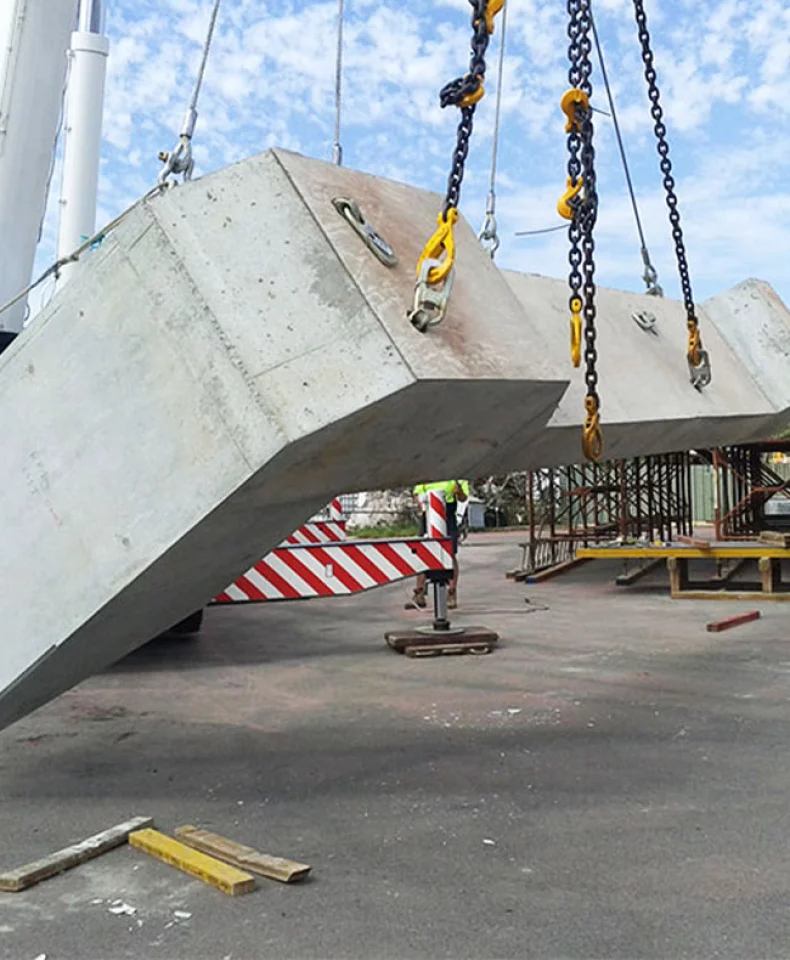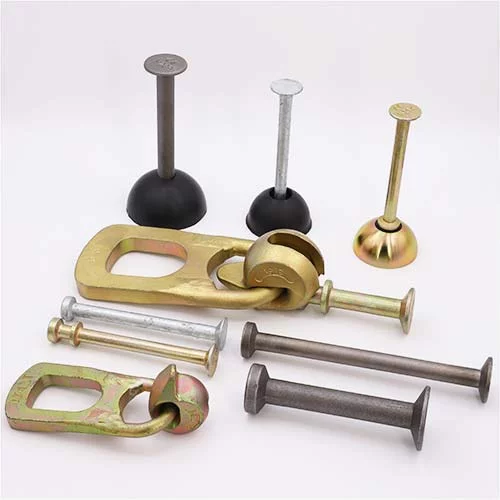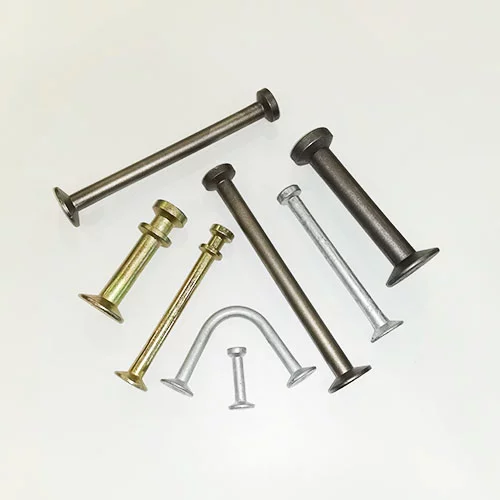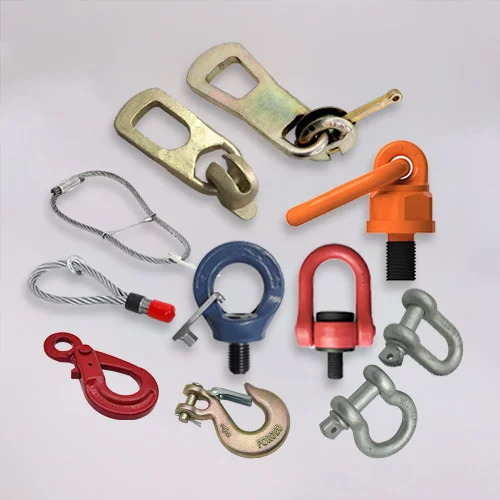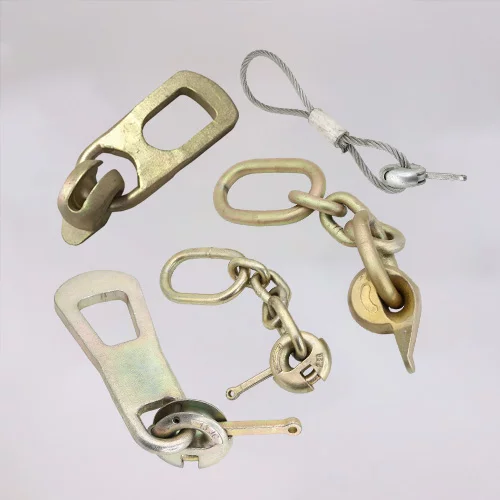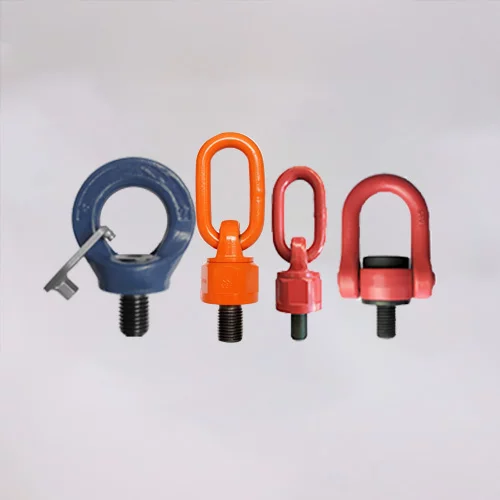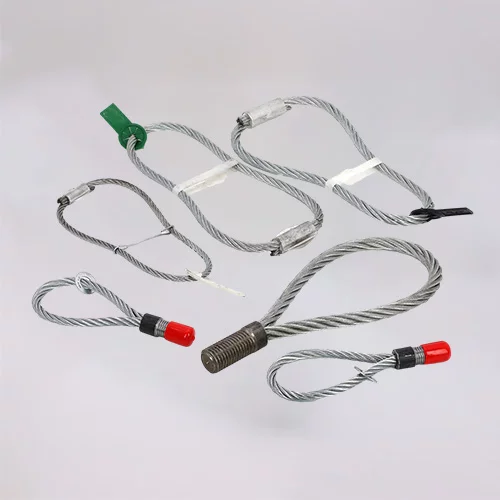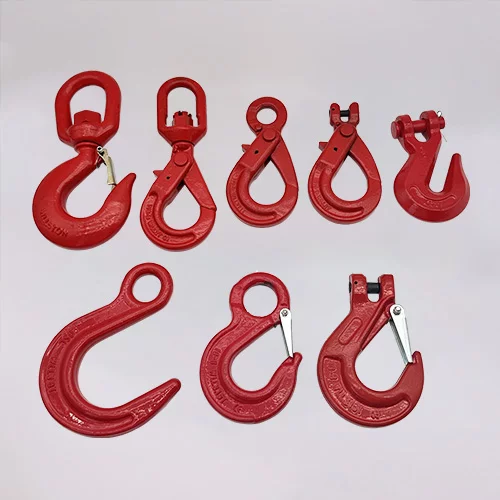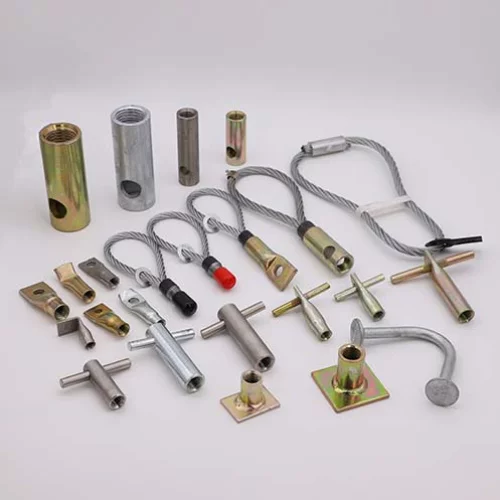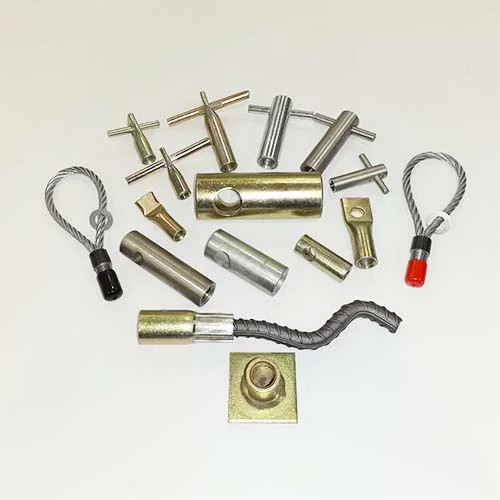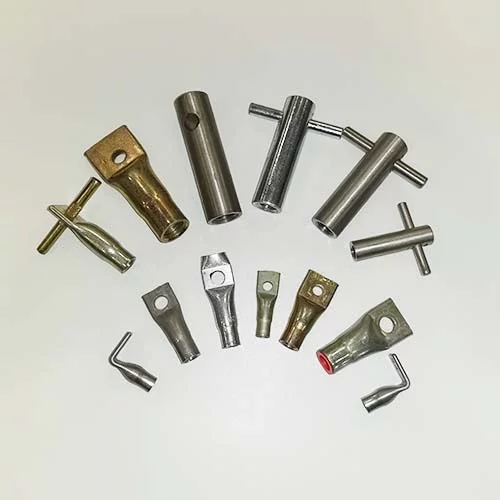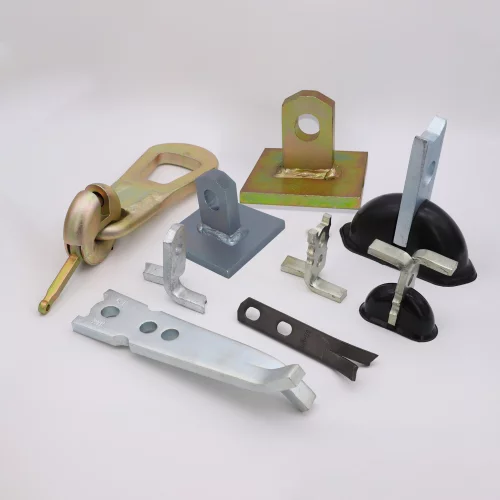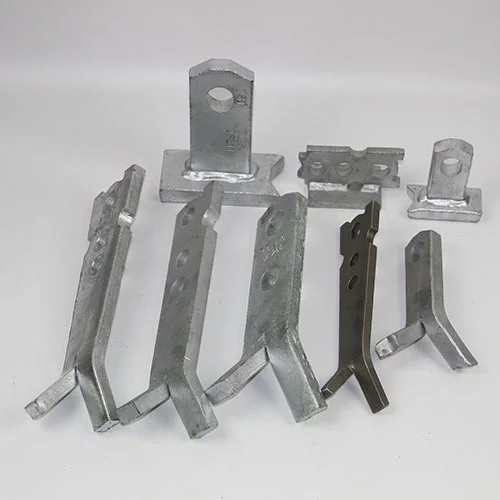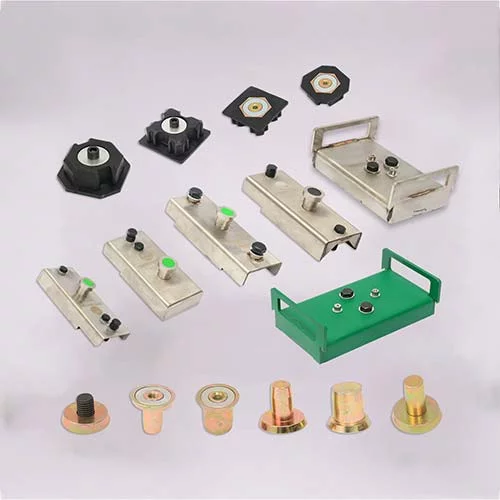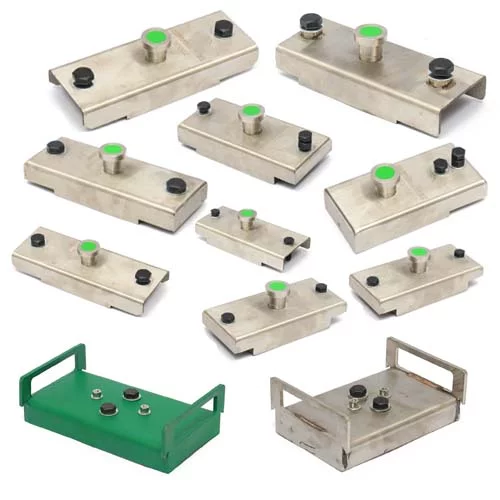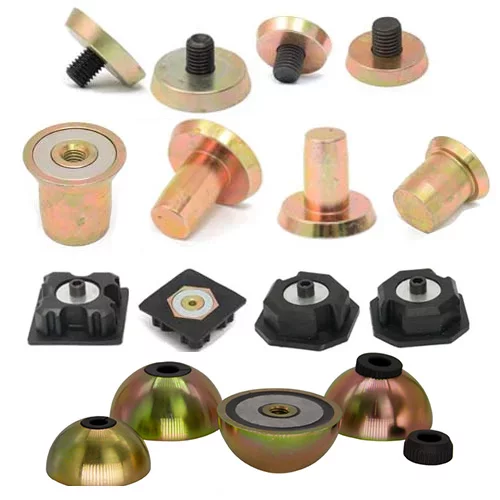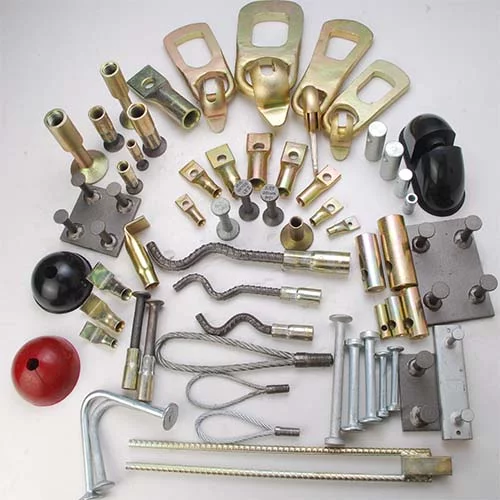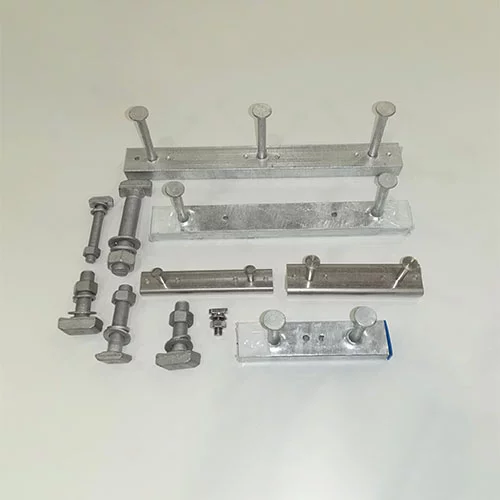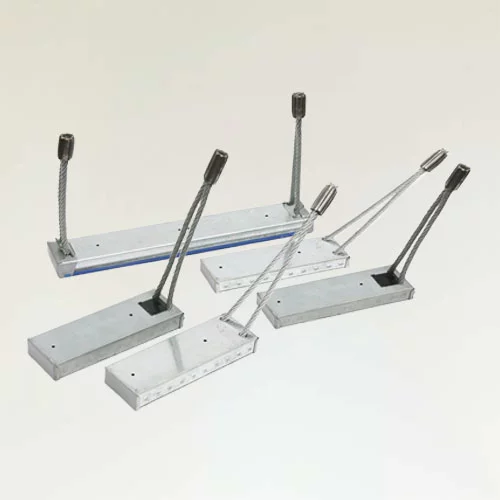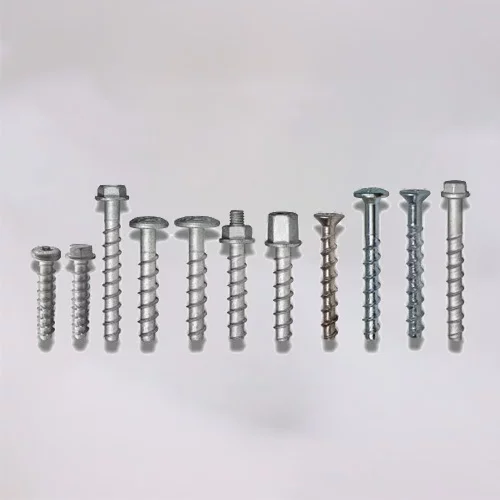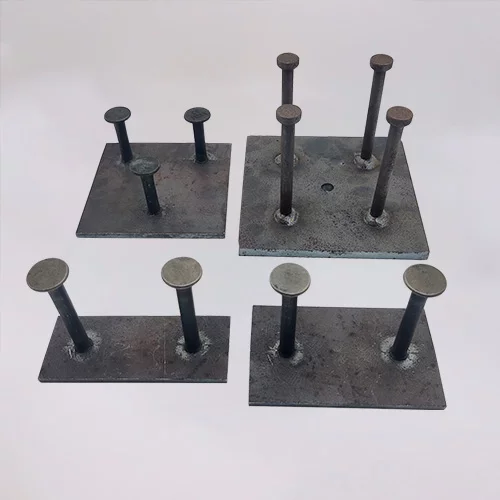Concrete Screw Bolts : Easy Installation, Strong Grip

In today's construction industry, time, safety, and strength are three critical elements that cannot be compromised on any project. Contractors are under constant pressure to deliver high-quality results faster and more efficiently. Concrete Screw Bolts stand out as a practical solution. Unlike traditional anchors, which can be difficult or time-consuming to install, these bolts are designed to be easy to install and secure. They combine the two key features builders seek: quick installation and reliable grip.
Whether securing heavy machinery, fixing structural components, or simply fastening railings to concrete, bolts make the job simple and reliable. Their ingenious design allows them to cut directly into the material, meaning fewer steps, less hassle, and a stronger result.
What exactly are Concrete Screw Bolts?
Concrete Screw Bolts are bolts specifically designed for installation into concrete, solid brick, hollow brick, or stone surfaces. These are also known as concrete anchors, concrete bolts, or concrete screw anchors. They are made of hardened steel and feature specially designed threads that cut into the base material when screwed in. Unlike many traditional anchors, the bolt does not expand within the hole, but instead forms its own thread path. This allows the bolt to securely hold without placing unnecessary stress on the concrete.
Main Types of Concrete Screw Bolts
Stainless steel bolts – corrosion-resistant, ideal for outdoor or marine environments.
Galvanized bolts – more economical and suitable for general indoor or dry areas.
Self-tapping bolts – designed to cut their own threads, saving significant installation time.
Heavy-duty bolts – designed for demanding applications like anchoring structural beams or industrial equipment.
With these various bolt types, you can find the right bolt for nearly any project.
Head Types

Concrete screw bolts with different head types offer different advantages. HULK Metal offers the following four.
| Head Type | Key Features | Advantages | Common Applications |
|---|---|---|---|
| Hex Head | Six-sided design, supports high torque | Strong grip, easy to install with standard tools, high load capacity | Structural fixings, industrial construction, heavy-duty connections |
| Countersunk Head | Sits flush with surface | Clean finish, enhances safety, no protrusion | Architectural facades, flooring systems, visible surfaces |
| Pan Head | Broad bearing surface | Even load distribution, reduces material damage, simple installation | Shelving, utility brackets, general-purpose anchoring |
| Flat Head with Flange | Low profile with integrated flange | Increased load-bearing area, prevents pull-through, high reliability | Railings, safety barriers, heavy equipment anchoring |
We can also provide custom services to help you complete your project.
Why Choose Concrete Screw Bolts?
Easy Installation
One of the biggest reasons contractors prefer bolts is their ease of installation. All they need is the right drill bit and driver. Drill the hole, clean the dirt, and screw the bolt in. That's it. No separate sleeves, chemical adhesives, or long curing times required.
For projects requiring dozens or even hundreds of fasteners, the time saved quickly adds up. This efficiency means lower labor costs and faster project completion.
Strong, reliable grip
Bolts are known for their high load capacity. Sharp threads cut directly into the concrete, creating a strong mechanical bond. This design ensures even load distribution, giving the fastener excellent resistance to tension and shear.
This makes the bolts suitable for a wide range of applications, from fixing light fixtures to anchoring heavy machinery or supporting precast concrete structures. Once properly installed, they provide reliable support that builders can rely on.
Wide Range of Applications
Concrete Screw Bolts are highly adaptable and can be used in residential, commercial, and industrial settings. From railings, safety barriers, and shelving to machinery bases and building framing, these bolts are up to the task.
Their ability to work effectively in concrete, brick, and block also makes them more versatile than many traditional anchors.
Material and Finish
The material and coating of the bolt directly impact its durability and performance in various environments.
Stainless Steel – Offers excellent resistance to rust and corrosion; best suited for outdoor, coastal, or humid environments.
Galvanized Steel – An economical option for interior projects where corrosion is less of a concern.
Hot-Dip Galvanized Steel – Provides a thicker coating, making it suitable for semi-exposed applications.
Special Coatings – Advanced surface treatments, such as epoxy or ceramic coating, can extend the lifespan of concrete screw bolts in chemically aggressive environments.
Choosing the right material based on the specific application ensures long-term, reliable operation of your concrete screw bolts.
What are the applications for concrete screw bolts?
Concrete screw bolts are a preferred solution for many industries. Here are some of the most common applications:
Precast concrete components – Connecting tie plates, lifting anchors, and rebar accessories.
Masonry and masonry – Securing exterior walls, fences, signage, or guardrails.
Industrial installations – Anchoring machinery, conveyor belts, and heavy-duty racking.
Infrastructure projects – Used in tunnels, bridges, and civil engineering.
Residential projects – Installing handrails, gates, or other safety-critical components in residential buildings.
The wide range of applications underscores their reliability and versatility.
Step-by-Step Installation Guide

While installation is simple, following the correct steps ensures optimal performance.
Drilling – Select the appropriate drill bit size according to the manufacturer's recommendations. The hole depth should allow the screw to fully engage.
Clean the hole – Use compressed air or a brush to remove dust and debris. A clean hole promotes better thread engagement.
Insert the bolt – Place the bolt in the hole and tighten it with a wrench or power tool.
Check for tightness – Tighten, but avoid overtightening to avoid damaging the threads.
Final check – Test for stability before applying full load.
By following these steps, installers can be confident that the bolt will perform as expected.
It's important to note that cleaning the drilled hole is easily overlooked. It's easy to skip this step, but cleaning the drilled hole is crucial. Failure to remove drill cuttings from the hole before installing concrete screw bolts may result in the screw not being fully inserted during installation. Consequently, if excessive torque is applied, the concrete screw bolt may break or fracture.
Cracked vs. Non-cracked Concrete – What's the Difference?
A common question in engineering practice is how to choose the appropriate anchor for different types of concrete. Concrete can generally be categorized as cracked or uncracked.
Uncracked concrete is commonly found in areas subject to compressive loads, such as columns or load-bearing walls. These areas are less likely to crack under load and are therefore generally considered structurally sound.
Cracked concrete occurs in areas subject primarily to tensile stress, such as the lower portion of a floor slab or the tension zone of a beam. These locations are more susceptible to developing fine cracks during service, a common occurrence even in reinforced concrete. While cracks are typically less than 0.3 mm wide and imperceptible to the naked eye, they can still significantly affect the load-bearing performance of the anchor. Therefore, when installing in cracked concrete, it is essential to select anchors certified for cracked concrete to ensure reliability and safety.
Comparison of Concrete Screw Bolts with Other Anchors
Comparison with Expansion Anchors
Expansion anchors rely on outward expansion to grip the concrete. While effective, they can sometimes cause cracking, especially near edges or in weak substrates. Bolts, on the other hand, cut directly into the threads, reducing stress on the concrete and providing a cleaner solution.
Comparison with Chemical Anchors
Chemical anchors offer high strength but require a curing time and precise installation conditions. Bolts provide immediate load-bearing capacity, saving time and effort.
This makes bolts particularly important in projects where speed and reliability are key.
How to Choose the Right Bolts
Not all jobs are the same, so choosing the right bolt is crucial:
Load Requirements – For heavy loads, choose bolts with larger diameters and longer lengths.
Material – Stainless steel is durable for outdoor use, while galvanized steel is cost-effective for indoor use.
Environment – Consider humidity, chemical exposure, or marine conditions.
Application Type – Lightweight fixings require different bolts than heavy-duty mechanical anchors.
Considering these factors ensures a balance between performance, cost, and longevity.
Frequently Asked Questions
Can concrete screw bolts be reused?
Yes, many bolts can be reused if carefully removed. However, the condition of the hole will determine whether the same strength can be achieved.
What size drill bit do I need?
Generally, it is recommended to use a drill bit slightly smaller than the screw diameter. Always follow the manufacturer's instructions.
How do I remove a bolt?
Use standard tools to remove it. This process is cleaner than removing expansion or chemical anchors.
Concrete Screw Bolts are more than just a fastening option; they're a solution designed to meet the demands of modern construction. Their easy installation and secure, reliable grip make them a top choice for builders, contractors, and engineers worldwide.
From small residential projects to large infrastructure projects, bolts provide efficiency, strength, and flexibility. By choosing the right size, material, and coating, they can maintain reliable performance for years to come.
In an industry where every second counts and safety is paramount, Concrete Screw Bolts help projects move forward smoothly and safely. They're a smart choice for anyone looking for a fastening solution that saves time without compromising strength.
Article Navigation
PRECAST CONCRETE ACCESSORIES
Other Precast Concrete Accessories You Might Want to Know
You can click to learn more about HULK Metal precast concrete accessories such as lifting anchors, precast sockets, spread anchors, shuttering magnets, cast-in channels, wire loop boxes, and other precast concrete accessories you might want to know.
